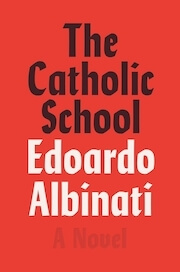The Yellow House by Sarah M. Broom (August 13, Grove Atlantic)
Sarah M. Broom’s debut, The Yellow House, seems to have sprung from Toni Morrison’s edict “If there’s a book you want to read, but it hasn’t been written yet, then you must write it.” Centered around the titular shotgun house she and her 11 siblings grew up in, Broom’s memoir is the story of her family and upbringing in New Orleans East, an area 10 miles from the French Quarter and one largely neglected by tourists and the greater cultural imagination—before and after Hurricane Katrina. “The house was, for me, both a source of shame and of immense joy. The place where I felt most and least myself,” Broom says. The Whiting grant winner conducted extensive interviews with her family members, amassing hundreds of hours of audio, to write this highly anticipated book about a New Orleans that most people don’t know.
The Memory Police by Yōko Ogawa (August 13, Pantheon)
Although her works have been widely translated over the years, Japanese author Yōko Ogawa is probably best known to English-speaking audiences for 2003’s The Housekeeper And The Professor, a sweet rumination on the fleeting power of memory (and the enduring strengths of math and baseball). Ogawa’s new novel, The Memory Police, looks to explore similar themes, but from an altogether more horrific perspective. Set on an island where things—hats, plants, even whole species of animals—begin disappearing, erased from people’s memories as swiftly as from the landscape, a writer and an editor attempt to stay one step ahead of the forgetfulness-enforcing Memory Police. Ogawa has a well-honed knack for merging surrealist themes—in this case, the rising, hard-to-shake sense that “truth” has gotten more malleable in recent years—with her protagonist’s own internal lives, and The Memory Police looks to be as much about loss as it is about the terrifying rise of unreality in the modern world.
Rion Amilcar Scott follows up his PEN/Robert W. Bingham Prize-winning short story collection, Insurrections, with a trip back to the fictional town of Cross River, Maryland, a settlement founded after the country’s only successful slave revolt. The linked collection, including a novella, traverses time and perspectives, from a musician who is also the last son of God to an inventor trying to create a new life form. “I’m attempting to write about blackness in the varied and multitudinous ways that I’ve experienced,” Scott has said. “With Cross River I want to create something weird and elliptical and black.” Using elements of magical realism, this new collection seems like a good one to get immersed in, in the waning days of summer.
The Catholic School by Edoardo Albinati (translated by Antony Shugaar, August 6, Farrar, Straus and Giroux)
The other week, we told a friend we wished there were such a thing as a room in which time did not pass, so that we could go there and read all the books we wanted to read, regardless of length. Reading some books feels aspirational, the attainment of an ideal, rather than an immediately realistic undertaking. It’s with this in mind that we recommend The Catholic School, a nearly 1,300-page novel from Edoardo Albinati, the 2016 winner of the Strega Prize, Italy’s most prestigious literary award. Painstakingly researched and semi-autobiographical, the novel is based on a brutal real-life crime: the rape, torture, and murder of two young women by three men in 1975. The novel is part true crime, part coming of age, and explores sex, violence, and masculinity in contemporary Italy.
More in August: Berta Isla by Javier Marías (August 6, Knopf);
The Long Accomplishment: A Memoir Of Hope And Struggle In Matrimony by Rick Moody (August 6, Henry Holt);
Valerie by Sara Stridsberg (August 6, Farrar, Straus and Giroux);
Felix Culpa by Jeremy Gavron (August 6, Scribe US);
Mitz: The Marmoset Of Bloomsbury by Sigrid Nunez (new edition, August 6, Soft Skull Press);
The Remainder by Alia Trabucco Zerán (August 6, Coffee House Press);
I’m Telling The Truth But I’m Lying by Bassey Ikpi (August 6, Harper Perennial);
The Three Dimensions Of Freedom by Billy Bragg (August 13, Faber & Faber);
Drive Your Plow Over The Bones Of The Dead by Olga Tokarczuk (August 13, Riverhead);
Dead Blondes And Bad Mothers: Monstrosity, Patriarchy, And The Fear Of Female Power by Sady Doyle (August 13, Melville House);
Inland by Téa Obreht (August 13, Random House);
Consent: A Memoir Of Unwanted Attention by Donna Freitas (August 13, Little, Brown);
Machine by Susan Steinberg (August 20, Graywolf);
Doxology by Nell Zink (August 27, Ecco);
Bottle Grove by Daniel Handler (August 27, Bloomsbury);
Everything Inside by Edwidge Danticat (August 27, Knopf);
Last Ones Left Alive by Sarah Davis-Goff (August 27, Flatiron Books);
The Girl Who Lived Twice: A Lisbeth Salander Novel by David Lagercrantz (August 27, Knopf);
From The Shadows by Juan José Millas (August 27, Bellevue Literary Press)


 Keep scrolling for more great stories from A.V. Club.
Keep scrolling for more great stories from A.V. Club.